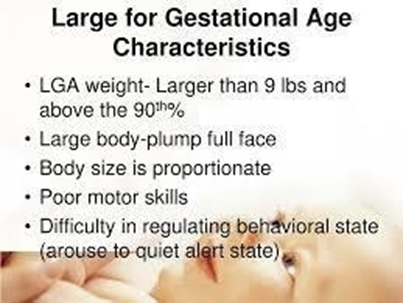The nurse is providing anticipatory guidance to the mother of a 9-month-old girl during a well-baby visit. Which topic would be most appropriate?
Warning about small objects left on the floor
Telling about safety procedures during baths
Advising how to create a toddler-safe home
Cautioning about putting the baby in a walker
The Correct Answer is A
A. At 9 months of age, babies are able to crawl and explore their environment. They may pick up and put anything in their mouth, which can cause choking or poisoning. Therefore, the nurse should warn the mother about keeping the floor clear of small objects, such as coins, buttons, beads, or toys with detachable parts.
B. Safety procedures during baths are crucial, but this topic may have been covered in earlier visits or could be discussed alongside creating a toddler-safe home.
C. This more relevant for older babies or toddlers who can stand, walk, or climb.
D. Cautioning about putting the baby in a walker is important, but it may not be the most immediate concern at 9 months, as many babies start using walkers around 6-9 months. Creating a safe home environment encompasses a broader range of potential hazards.
Nursing Test Bank
Naxlex Comprehensive Predictor Exams
Related Questions
Correct Answer is C
Explanation
A. A birthweight above the 90th percentile for gestational age is characteristic of large-for-gestational-age newborns. The above birth weight is within the normal ranges.
B. Strong, brisk motor skills are not necessarily indicative of being large-for- gestational-age.
C. Large-for-gestational-age newborns. They may have difficulty in arousing to a quiet alert state due to hypoglycemia, hypocalcemia, or polycythemia.
D. A wasted appearance of extremities is more indicative of intrauterine growth restriction (IUGR) rather than being large-for-gestational-age. LGA newborns typically have plump and rosy appearance.

Correct Answer is A
Explanation
A. Before answering questions, it's important to understand what the child already knows or thinks about the subject to provide developmentally appropriate information.
B. Expanding upon the topic when answering questions may overwhelm the child with too much information and may not be developmentally appropriate.
C. Providing a less than honest response may undermine trust between the parent and child and may not adequately address the child's curiosity or concerns.
D. Waiting until the child asks about a topic may miss opportunities for proactive, age-appropriate education and guidance.
Whether you are a student looking to ace your exams or a practicing nurse seeking to enhance your expertise , our nursing education contents will empower you with the confidence and competence to make a difference in the lives of patients and become a respected leader in the healthcare field.
Visit Naxlex, invest in your future and unlock endless possibilities with our unparalleled nursing education contents today
Report Wrong Answer on the Current Question
Do you disagree with the answer? If yes, what is your expected answer? Explain.
Kindly be descriptive with the issue you are facing.
